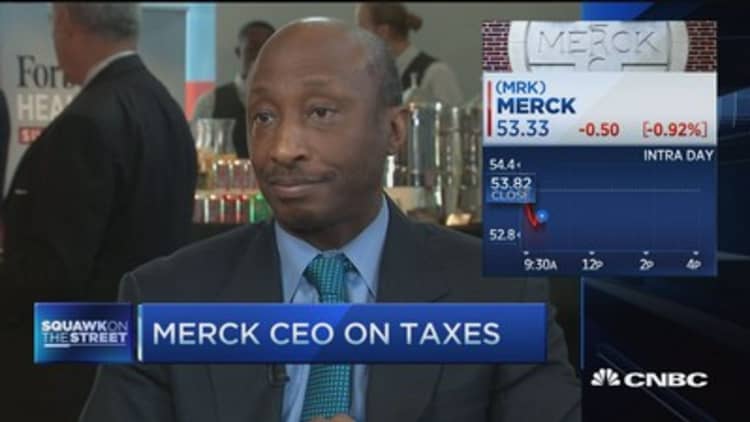
High corporate taxes are hindering health care in the U.S., two health-care CEOs said Thursday.
"There's no question that U.S.-based companies are at a huge disadvantage in the global competition for assets, IP assets, for talent," Kenneth Frazier, CEO of Merck, told CNBC's "Squawk on the Street." "I would hope the government would look at this transaction as a watershed and say we have to fix the non-competitive U.S. tax system."
The corporate tax rate in the U.S. currently sits at 40 percent, the second highest behind the United Arab Emirates. In fact, the high tax rates were one of the factors for Pfizer to relocate its global headquarters to Ireland — where the tax rate is 12.5 percent — once its acquisition of Allergan is complete.
Omar Ishrak, chairman and CEO of Medtronic, said the money these companies pay in taxes could be put to better use.
"The medical device tax cost us something like $200 million a year," he told CNBC's "Power Lunch." "If that were not to be paid, we would be channeling that kind of money into areas that we can grow our business. Technology would be a primary [element] to go after."
"We find that, in this space, there's still a lot of room for innovation, and more capacity to invest in that area would drive future growth."
Still, Frazier said he is hopeful the U.S. tax system will be reformed.




